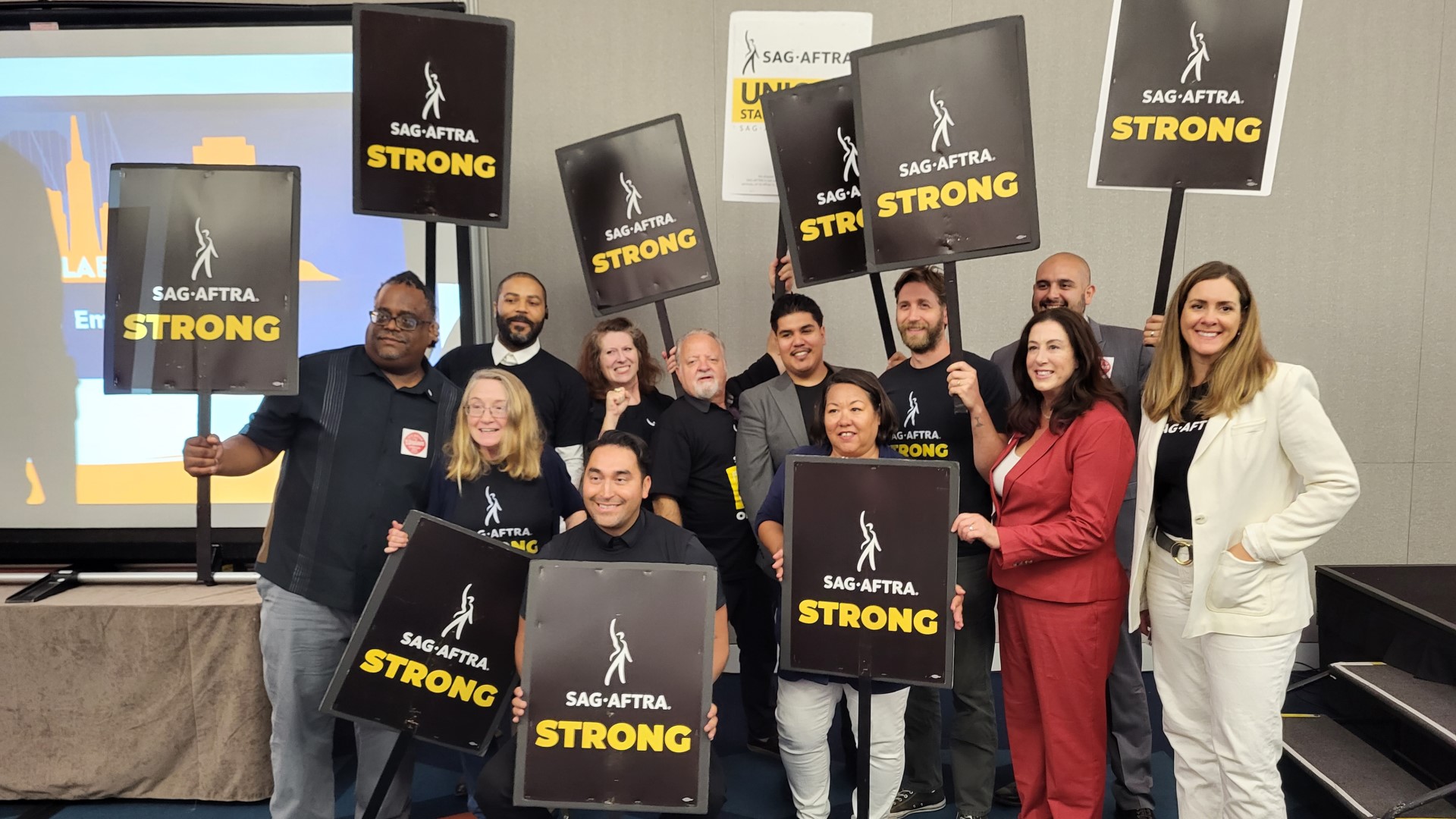Hollywood will need permission to make AI deepfakes of long-gone stars
Incoming California law demands consent for AI performers

Sign up for breaking news, reviews, opinion, top tech deals, and more.
You are now subscribed
Your newsletter sign-up was successful
California is another step closer to defining how and when moviemakers and others can use AI versions of celebrities in their projects. The California state Senate has passed AB 1836, a law requiring those who want to make an AI replica of a deceased performer get explicit consent from their estates. The bill now goes to Governor Gavin Newsom, who will likely sign the bill thanks to its backing by the unionized performers of SAG-AFTRA and related groups.
The law covers any digital recreation using AI. That might mean a still image, a voice clone performing a new role, or even a full character in a film made long after their passing. Regardless of the purpose, the producers must get the estate or legal representative of the deceased performer to agree. The new bill comes right after the Senate passed the related AB 2602. That bill focuses on living performers and sets stricter rules for consent before AI replicas can be used. Together, these bills represent a growing recognition of the need to regulate AI’s impact on both the living and the deceased in the entertainment industry.
“For those who would use the digital replicas of deceased performers in films, TV shows, video games, audiobooks, sound recordings and more, without first getting the consent of those performers’ estates, the California Senate just said NO,” SAG-AFTRA said in a statement. “AB 1836 is another win in SAG-AFTRA’s ongoing strategy of enhancing performer protections in a world of generative artificial intelligence."
Deepfake Demand
The union has already encouraged deals built around the structure of the bill even before it becomes law. For instance, SAG-AFTRA and AI startup Narrativ partnered on a new online marketplace where actors can license their voices AI voice clones while controlling where and how the voices are used. Similarly, AI voice developer ElevenLabs made a deal with the estates of several deceased Hollywood stars, including Judy Garland, James Dean, Laurence Olivier, and Burt Reynolds, to get legal rights to their voices for new AI-created performances.
SAG-AFTRA's embrace of the bill is unsurprising, considering the last year or so. AI was central to the recent strike by the union, and AI protections were built into the new master TV and film contract template. But the bills may mean a lot more to the AI space than just deepfake casting calls. California might set a template thanks to the strength of the state's entertainment and tech industry. Other states and countries may model their own regulations on the same premise to simplify matters on a global scale.
"The passing of this bill, along with AB 2602 earlier this week, builds on our mosaic of protections in law and contract," SAG-AFTRA wrote. "Both of these bills have been a legislative priority for the union on behalf of our membership and beyond, making explicit consent in California mandatory. We look forward to these bills being signed by Governor Gavin Newsom."
You might also like
- How you can get (AI versions of) Judy Garland or Burt Reynolds to read to you
- Forget Scarlett Johansson – Meta is reportedly spending millions on Hollywood voices for Siri and Google Assistant rival
- Google may be making AI versions of celebrities for you to chat up in YouTube
Sign up for breaking news, reviews, opinion, top tech deals, and more.

Eric Hal Schwartz is a freelance writer for TechRadar with more than 15 years of experience covering the intersection of the world and technology. For the last five years, he served as head writer for Voicebot.ai and was on the leading edge of reporting on generative AI and large language models. He's since become an expert on the products of generative AI models, such as OpenAI’s ChatGPT, Anthropic’s Claude, Google Gemini, and every other synthetic media tool. His experience runs the gamut of media, including print, digital, broadcast, and live events. Now, he's continuing to tell the stories people want and need to hear about the rapidly evolving AI space and its impact on their lives. Eric is based in New York City.